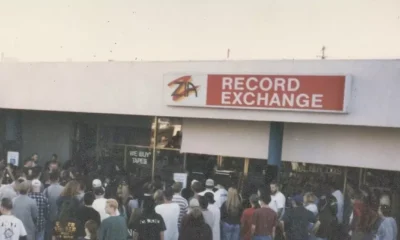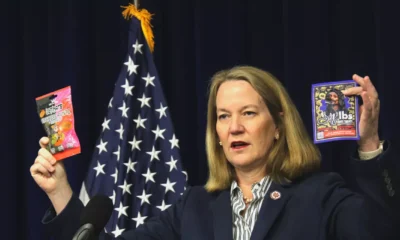Politics
Judge Orders Release of AZ Voter Records: What You Need to Know

PHOENIX — A recent ruling from a federal judge has mandated that Secretary of State Adrian Fontes disclose records related to his responsibilities for maintaining accurate voter rolls. U.S. District Court Judge Steven Logan, however, declined to grant a request from a group known as Citizen AG to immediately remove 1.2 million voters from the registration list, citing insufficient evidence to support their claims.
Judge Logan emphasized that the allegations made by Citizen AG, which describes itself as a voter education organization, were “wholly speculative” at this stage. Alexander Kolodin, the attorney representing Citizen AG, called the ruling a victory, as the released records could potentially substantiate their claims regarding poorly maintained voter rolls. The judge has set a compliance deadline of December 2 for Fontes to produce the requested records.
Kolodin believes that the documentation could lay the groundwork for a future legal challenge concerning the voter rolls, even if that process must wait until after the upcoming election. He criticized Fontes, a Democrat, for allegedly withholding records that might reveal shortcomings in the management of voter registrations. “It is obviously difficult to prove a claim when the secretary has been withholding just those records which reveal the depths of his incompetence and malfeasance,” Kolodin remarked.
A spokesperson for Fontes declined to comment on the ruling but confirmed that the office would comply with the order. The core issue of the lawsuit revolves around allegations that there are ineligible individuals listed on the voter rolls.
During the court proceedings, Assistant Attorney General Karen Hartman-Tellez represented Fontes and stated there was no concrete evidence backing Citizen AG’s allegations. Nonetheless, she acknowledged the uncertainty regarding the number of voters who may no longer reside in Arizona or are deceased.
State and federal laws require election officials to issue notices when evidence suggests that a registered voter has moved, effectively placing them on an “inactive” list. Individuals can reactivate their status by presenting identification and proof of address at a polling location but face permanent removal if they do not vote in two subsequent elections.
Citizen AG claims that following the 2022 election, 1.2 million Arizonans were categorized as inactive but have not yet been removed from the rolls. They argue that this failure compromises the voting power of eligible voters.
Judge Logan found the group’s assertions to be based on “uncertain intervening events,” noting that the connection between ineligible voters being on the rolls and their opportunity to vote was speculative. He ruled out any immediate action to remove the names of 1.2 million individuals from the list.
The judge referenced reports provided to the federal Elections Assistance Commission as insufficient evidence to support the claim of a substantial number of inactive and ineligible voters. He pointed out that the National Voter Registration Act prohibits large-scale removals from voter rolls within 90 days of an election.
Fontes’ assistant attorney emphasized concerns about the timing of Citizen AG’s request, arguing they could have pursued the records sooner. However, Judge Logan affirmed that the legal obligation to provide access to specific records remained unchanged regardless of when the request was made. He reiterated that the law is applicable even just before an election and maintained the December 2 compliance deadline for Fontes.

















